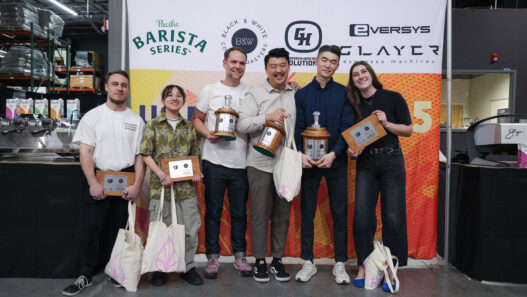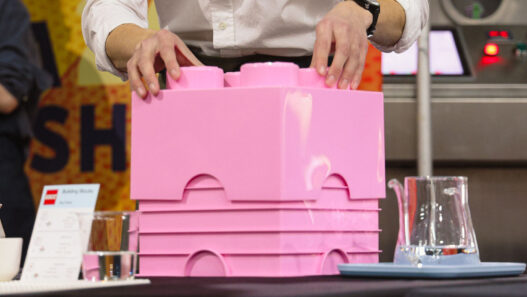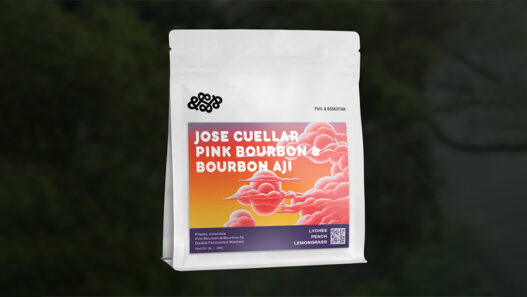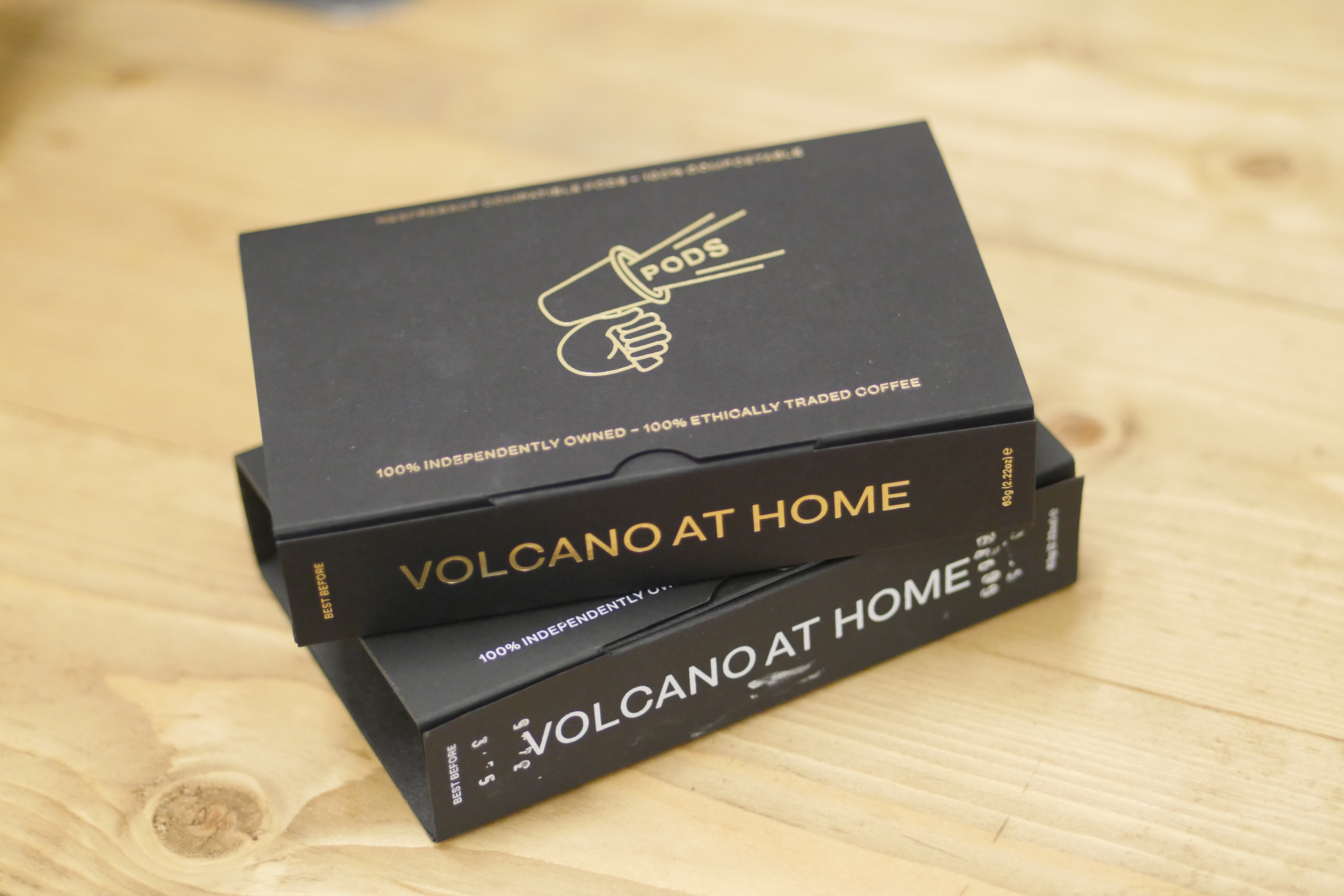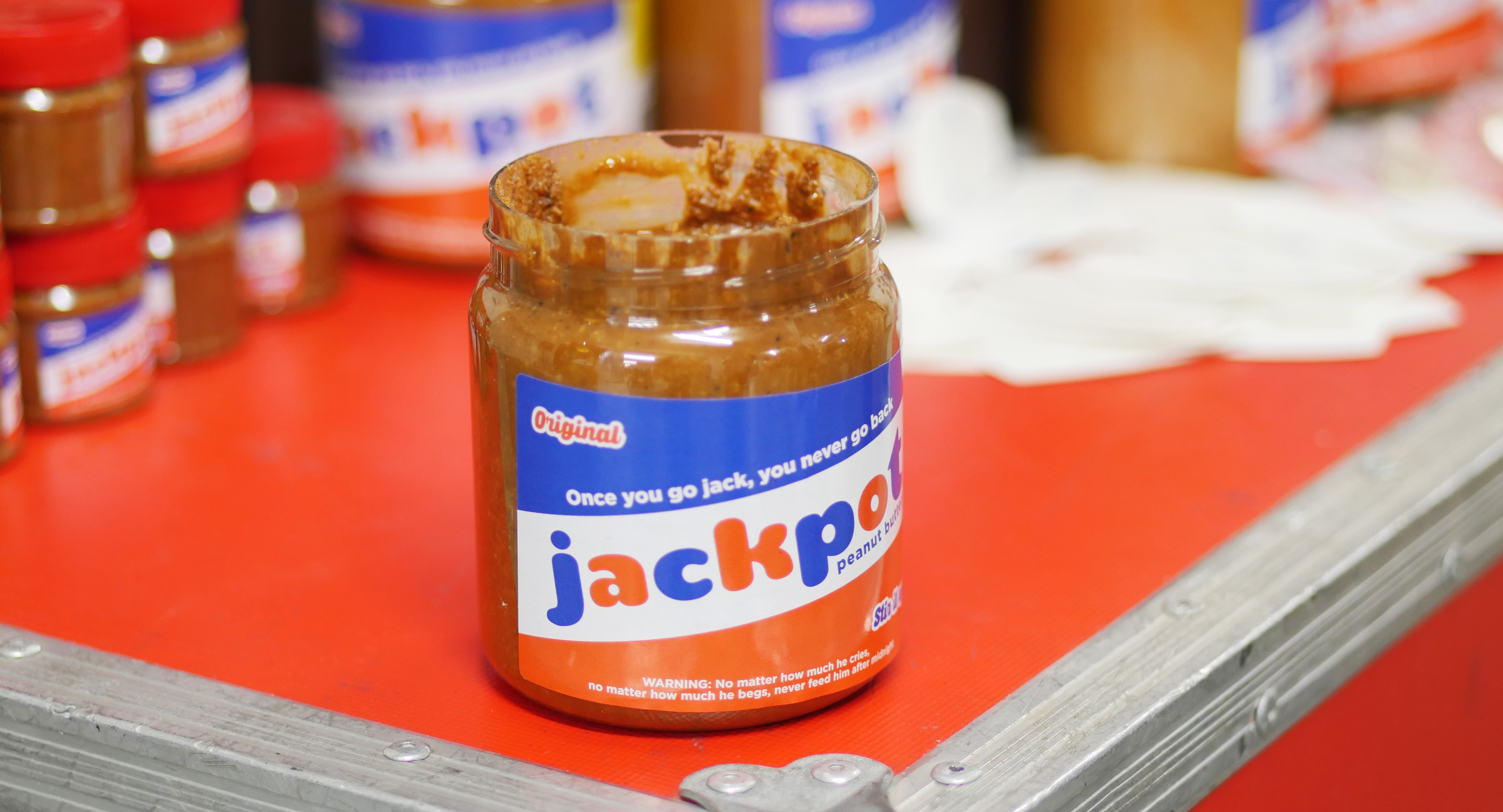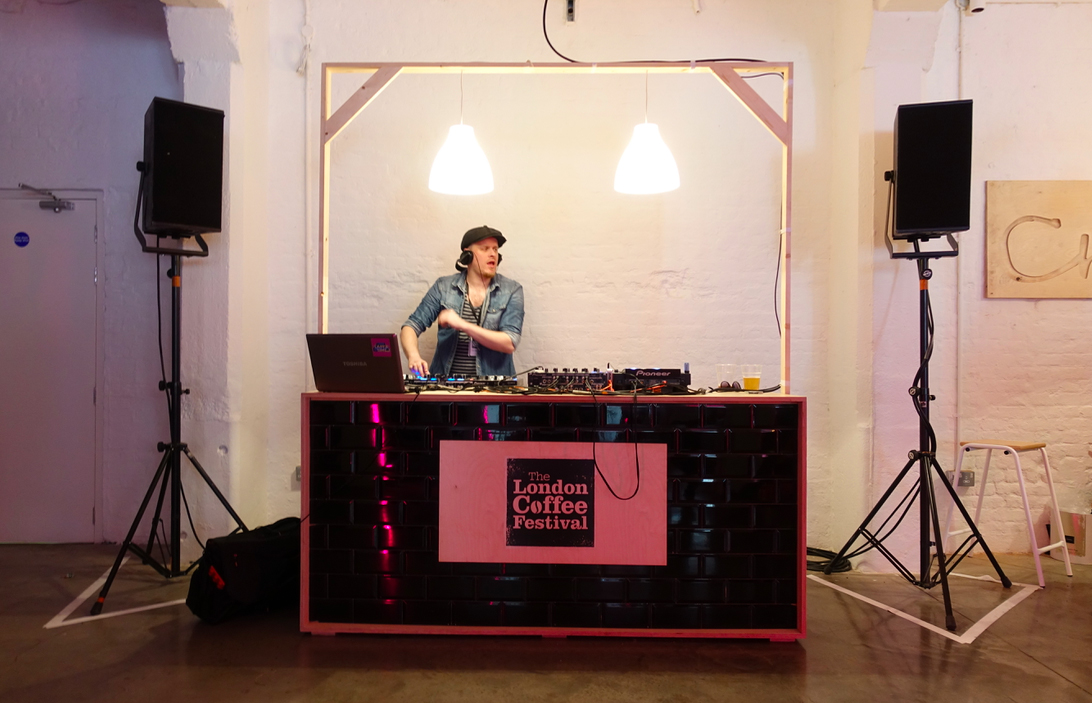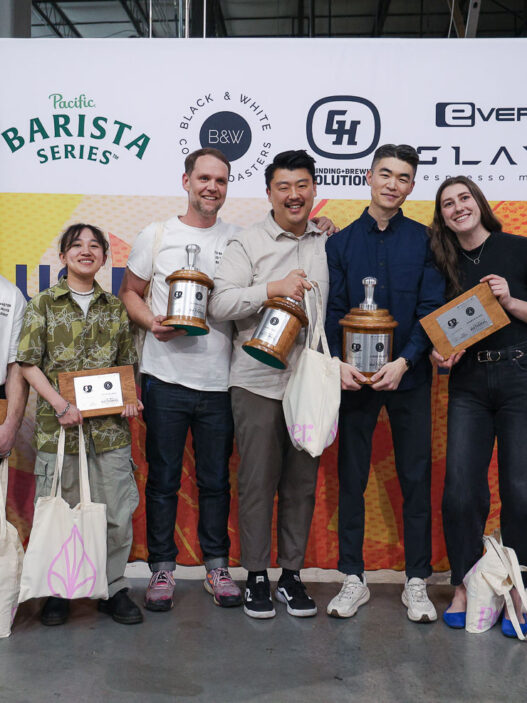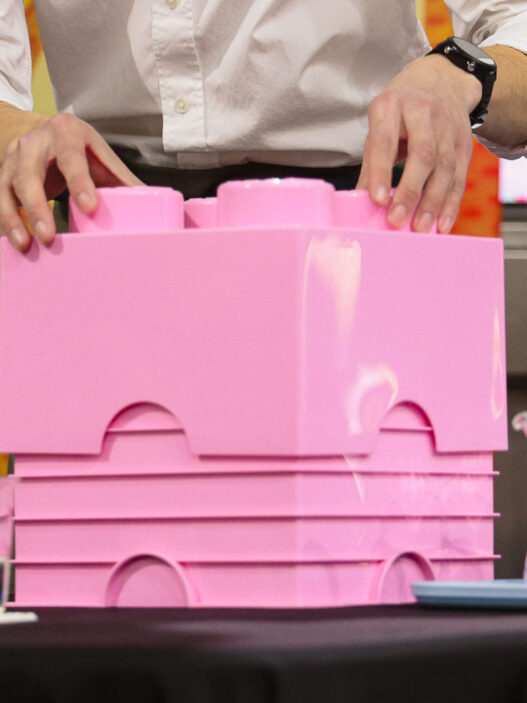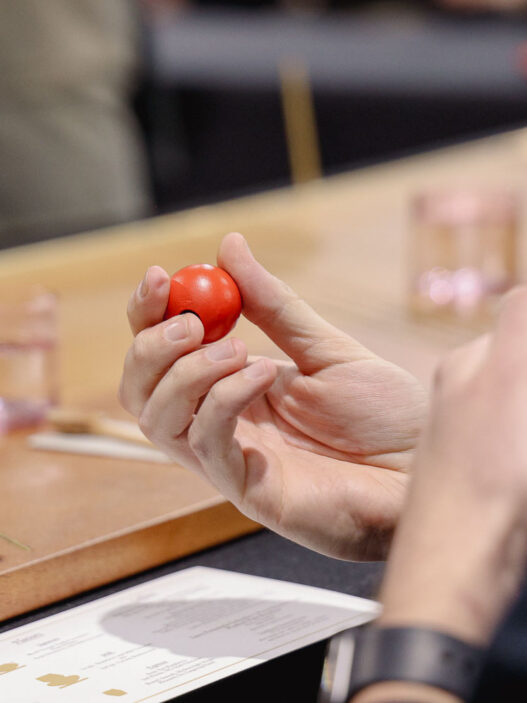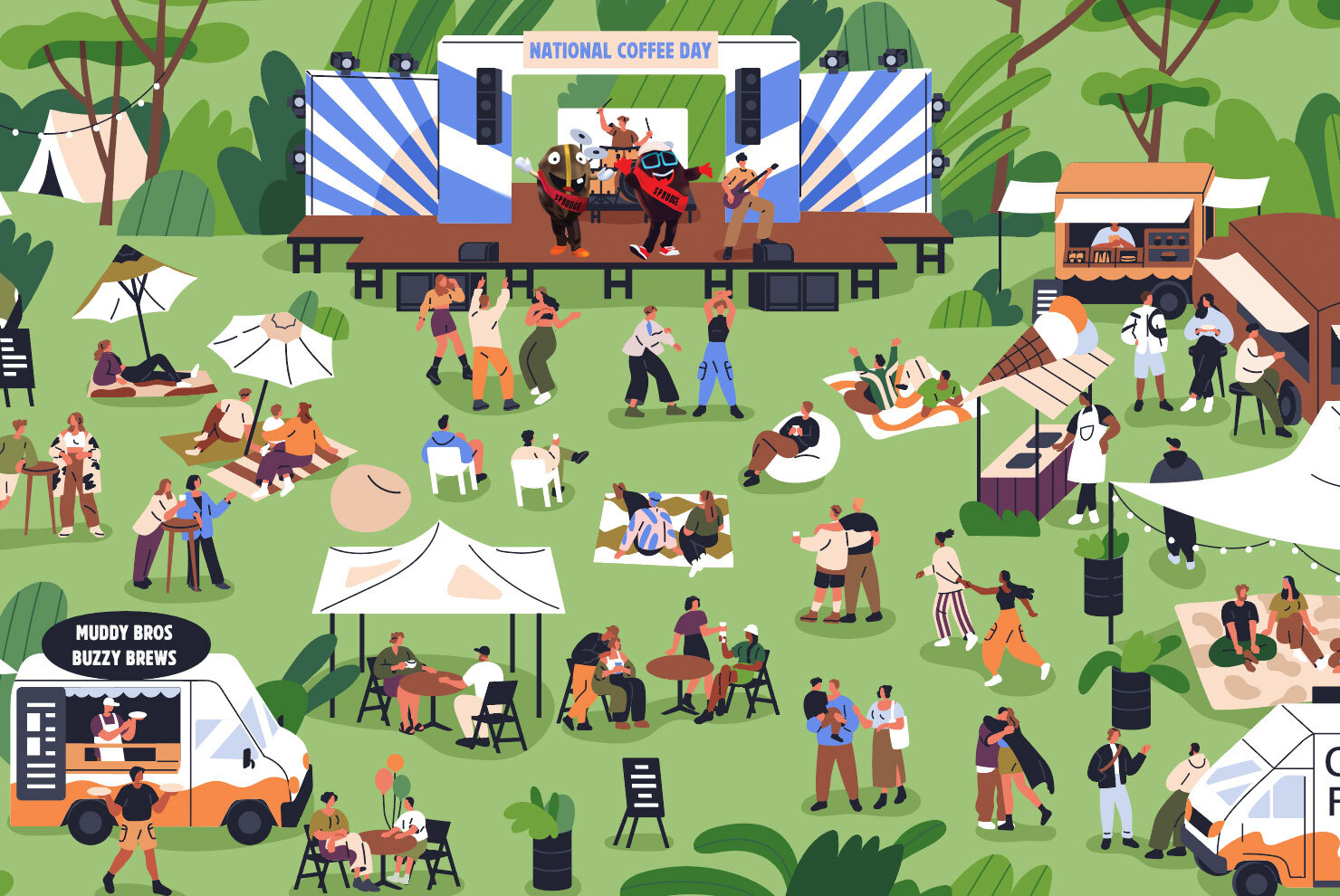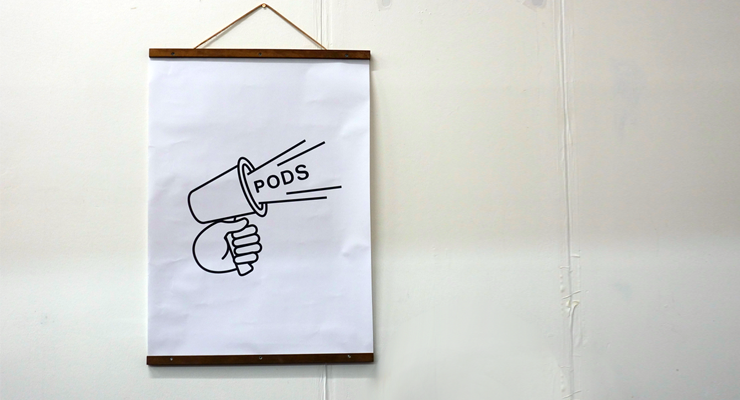
Day Three at London Coffee Festival saw quite a shift in concept at the Assembly Coffee booth. For the first two days, the London coffee roaster’s booth was awash with Wush Wush; you couldn’t be within a 10-foot radius without hearing the wispy supplications of passersby clamoring to taste what is arguably the world’s hottest coffee variety right now. But on the third day, all espresso machines and pour-over devices—any evidence that Assembly was there, really—was removed to make room for Volcano Coffee Works, Assembly’s (older) sibling brand, who were announcing Volcano At Home, their new line of 100% compostable pod capsules.
Volcano At Home has been in the works for nearly a year now, Assembly’s Marketing and Business Development Manager Michael Cleland tells me. They are the first 100% compostable specialty pods to go to market, just beating out Colonna Coffee pods announced earlier this year.
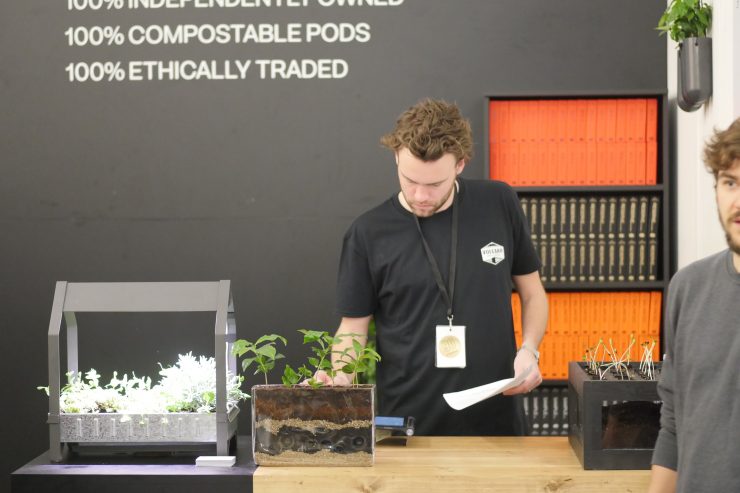
At their core, the pods are providing a specialty coffee experience to the convenience-seeking home user, but doing so without much of the information that can overwhelm and intimidate the everyday coffee drinker. The brand aesthetic is certainly that of specialty. The booth itself was very sleek minimalism with infusions of color coming from a greenhouse of seedling coffee plants. The branding was clean, unique, and eye-catching; each pack of pods resembled a hardcover book with the sleeve removed.
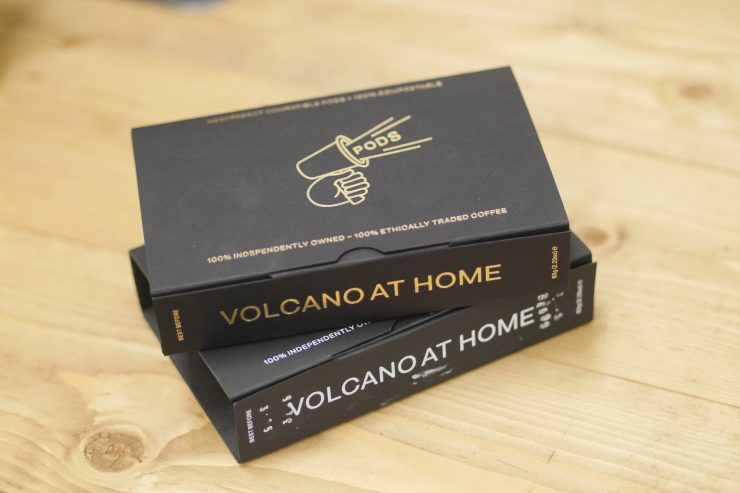
But anything that may keep a regular coffee drinker from engaging has been removed. There’s no roast date (because the product is shelf stable for three months), origin information, or tasting notes. The pods come in three different “flavors” that are already available to every drinker of liquid’s vocabulary: bold, balanced, and reserve. Each type is given an “intensity” score from one to five and includes descriptors like “the perfect breakfast shot” and “all day.” The goal is to bring the best characteristics of specialty coffee—flavor profile, high quality green coffee, ethical sourcing, meticulous processing, etc.—to the market without heralding it as anything “special”.
“The ethos is to deliver specialty coffee to a broader audience by circumventing time, knowledge, and equipment—the things that traditionally block those already expressing an interest in coffee from exploring the next phase after commodity [grade],” Cleland states.
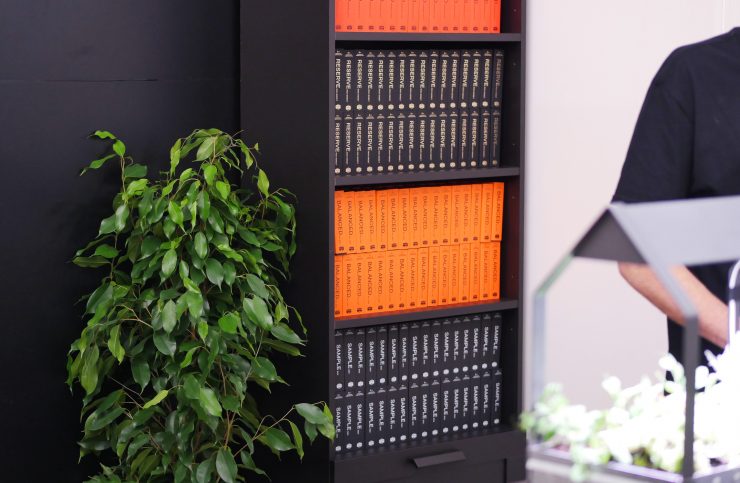
Even as I write this, I can already hear the protestations that specialty coffee roasters shouldn’t be “watering down” their product by making single-serve pods for the less-finicky home user or that it is a semantic distinction of being first to market when another brand has already announced their version of the 100% compostable pod. To this, I say, “simmer down.” Having an environmentally-friendly arms race is a good thing for the industry.
And beyond that, the two brands occupy two different but necessary phases in the growth of the specialty coffee acolyte. Colonna Coffee present themselves in ways specialty coffee folk want people to get to; they talk about coffee how we talk about coffee, with origin information and flavor notes. Volcano at Home meets consumers where they are, acquainting them with many of the characteristics of specialty coffee without some of the stumbling blocks, allowing them to develop the vocabulary in their own time. But even if the consumer stops their evolution at Volcano At Home, they are still drinking a quality cup of coffee that is environmentally friendly and ethically sourced. Stripped to its core, these are the pillars of specialty coffee.
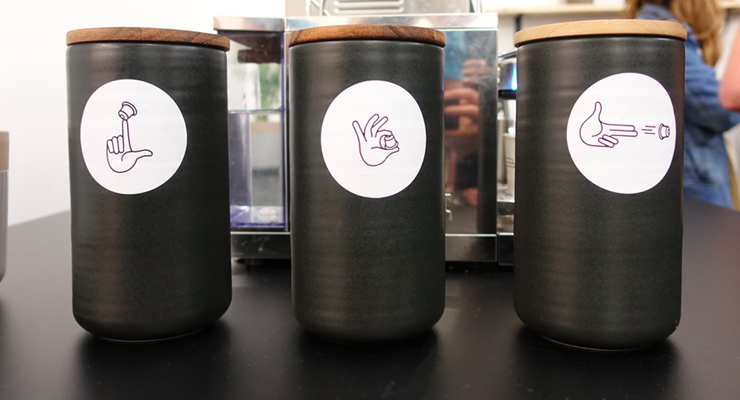
Zac Cadwalader is the news editor at Sprudge Media Network.






